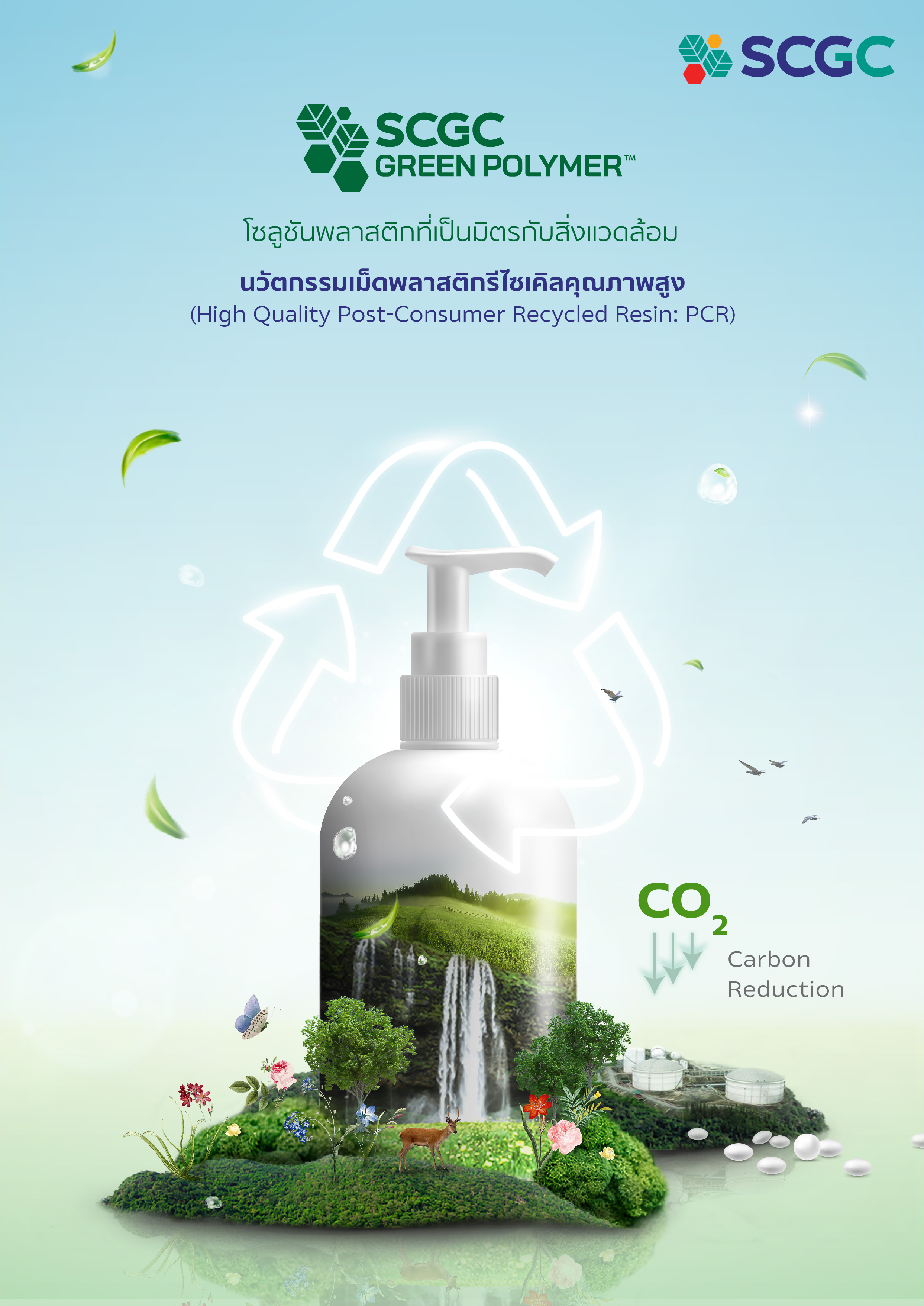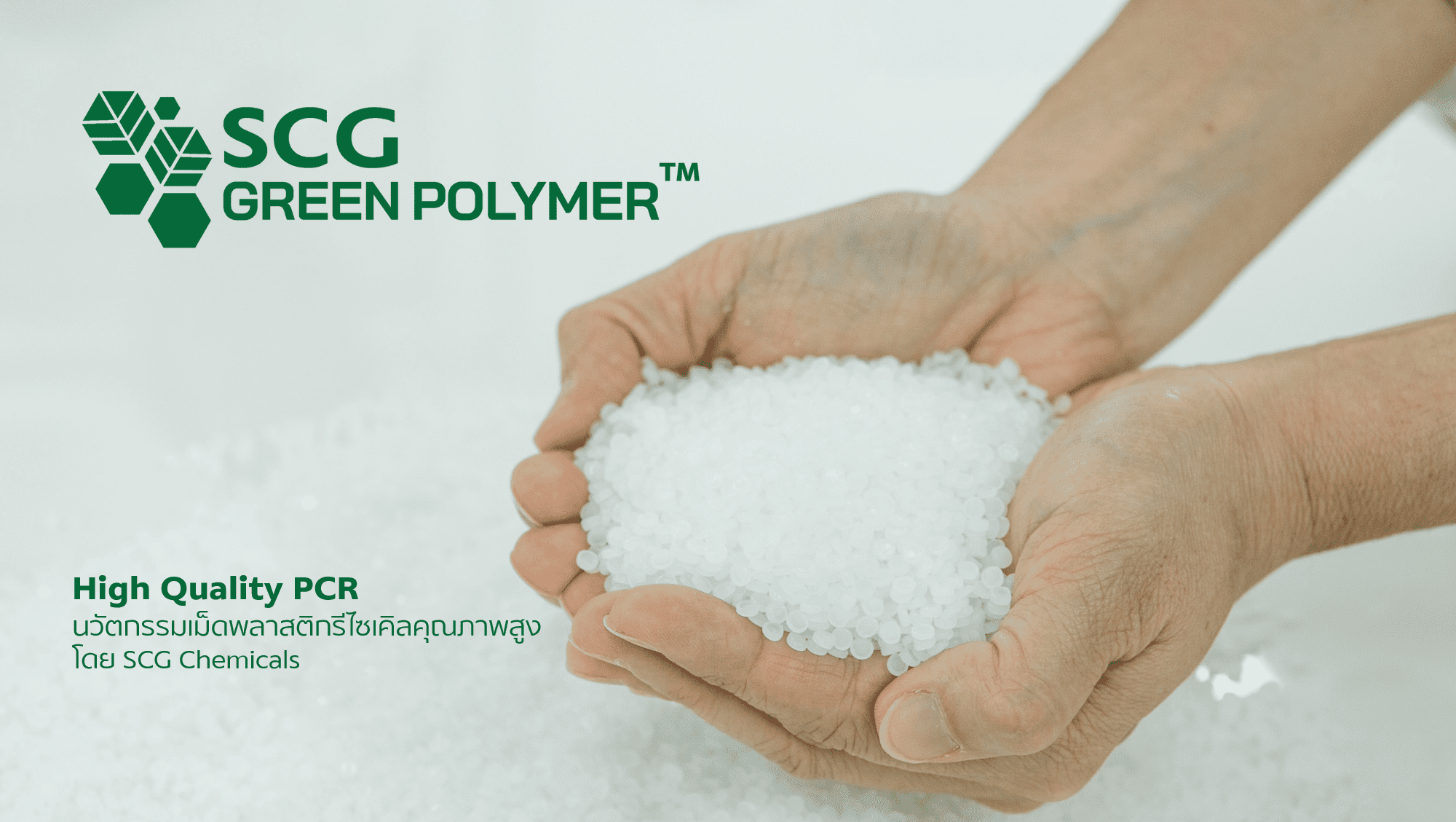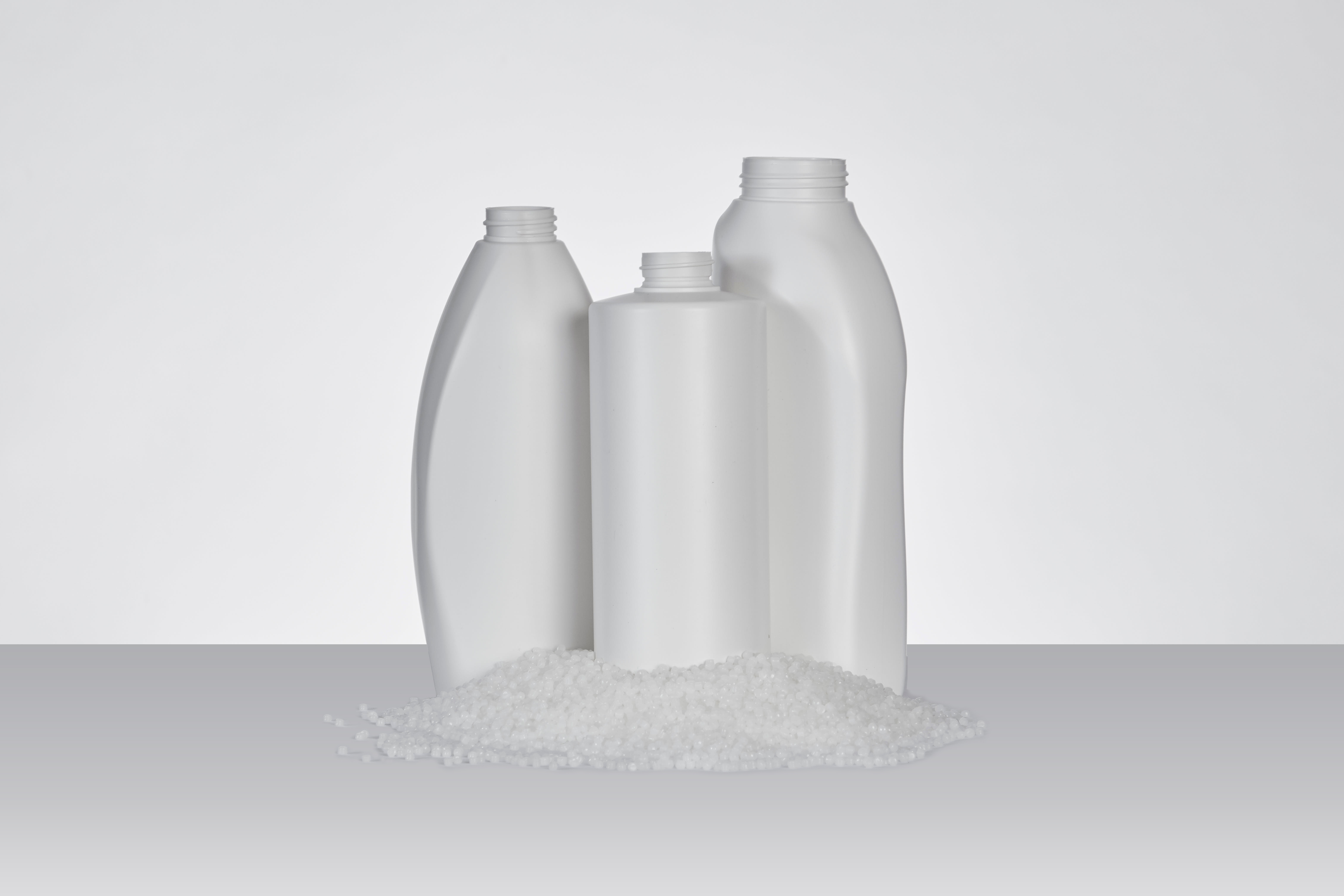SCGC consistently conducts business in accordance with sustainable development and is a leader in the development of plastic resin powered by technology and innovation. It has embraced circular economy principles, which emphasize resource circulation as a means of reducing resource use, energy consumption, and waste generation, by developing innovative plastic resins for the planet's better future under the brand "SCG GREEN POLYMERTM." Edit your content here...
Global warming, natural disasters, and trash overload are all negative consequences caused by human activities that are currently reversing the threats toward human quality of life. It is projected that the severity of disasters will increase if we do not cease squandering resources and energy and generate vast amounts of waste that pollute the environment. One of the waste materials being targeted is plastics.
Plastics have become an integral part of people's due to their excellent durability, elasticity, stiffness, and ease of moldings. As a result, they are incorporated into various products and packaging. On the other hand, plastic is a difficult material to biodegrade. If not properly disposed of, post-consumer plastic becomes waste, polluting the environment for hundreds of years. Globally, there is a growing effort to address climate change and waste management. The government, businesses, and civil society all acknowledge the significance of environmentally friendly production and consumption.
Throughout the product's life cycle, SCGC has raised questions to explore sustainable approaches to plastic management based on circular economy principles and the 4Rs principles: Reduce - how can we reduce our reliance on natural resources?; Recyclable – how can we make difficult-to-recycle plastic products and packaging more recyclable; Recycle - how can plastics be recycled; and Renewable - how can we use renewable plastic as raw material and make it biodegradable? These questions will lead to a comprehensive decrease in the amount of plastic in the ecosystem, which is a means to solve plastic waste issues while also helping to reduce the impact of intensifying global warming.

Reduce: Boost Product Performance with SMXTM Technology:
Is it possible to decrease the amount of plastic used by making the plastic product thinner while maintaining the same robustness or thickness with increased performance? With a commitment to seeking a solution, SCGC developed SMXTM technology to produce HDPE that retains a balance of high strength and stiffness, allowing for a reduction in plastic usage throughout the molding process while maintaining the product's desired strength properties. As a result, the product is lighter, resulting in energy savings during transportation and lower shipment costs. Plastic products created with SMXTM technology can lower greenhouse gas emissions by 10-20% compared to those made with standard plastic resins. The plastic products that benefit from this technology are divided into those that require lightweight and stiffness properties, such as bottle caps that require ultra-lightweight properties; ultra-thin bottle caps for carbonated beverages that are sturdy and retain gas better, lowering the amount of plastic used by up to 20%; products with a high degree of durability, such as industrial-grade plastic packaging bags that can help reduce plastic consumption by 30%; and products requiring a high degree of robustness, such as Intermediate Bulk Containers (IBCs), which can lower the weight and plastic content by up to 6%. The plastic resins produced by SMXTM technology are of high grade. When recycled, it can also help to reduce the amount of virgin plastic used in each recycling mixture and increase the number of recycling times. Meanwhile, once recycled, conventional plastic's quality degrades faster.
Recyclable: Mono-Material Plastic Packaging
Is it possible to make food packaging bags, snack bags, or cleaning liquid bags that are hard to recycle, recyclable? The reason for this is that this difficult-to-recycle packaging is multi-material in nature with different properties, such as an outer layer that must be aesthetic for printing brands and product names, a mid-layer that must function as a barrier to preserve food quality, such as moisture protection, and an inner layer that must serve to support food safety.
These packaging materials are in high demand by consumers and ultimately wind up in a landfill, polluting the environment. This is the industry's primary issue that must be addressed. SCG GREEN POLYMERTM's solution is to transition away from multi-layer material packaging and toward mono-material packaging by developing PP or PE for packaging with the right qualities for each layer of usage. PE/PE for the outer layer can be used for aesthetic printing, while PP/PE for the mid-layer can be used to control the diffusion of molecules in accordance with industry standards, resulting in a final product that can be recycled efficiently because this is a machine-processable type of plastic.

Recycle: Transform Household Waste into High-Quality PCR
Is it possible to recycle household waste into PCR that contains standard properties? Significantly, this can help reduce plastic waste while also supporting the manufacturer in reducing resource usage. The process starts by sorting household plastics and thoroughly cleaning them, excluding multi-material packaging. The sorted plastic will then undergo the mechanical recycling process, where it will be compacted into small pieces and then melted and converted into high-quality post-consumer recycled resin (PCR). The product owner can manufacture PCR from recycled materials or other sources to create a new product, taking full responsibility for the product's life cycle. In addition, they can be accredited by the Global Recycled Standard (GPS) for feedstock sourcing in the manufacture of PCR. SCGC developed PCR as another critical strategy for SCG GREEN POLYMERTM in collaboration with Teamplas, Thailand's largest plastic recycler for over 30 years, Suez, Europe's largest recycler, and Sirplaste, Portugal's largest plastic recycler. SCGC has developed advanced recycling/chemical recycling for difficult-to-recycle plastics like multi-material packaging, which can turn used plastic into recycled feedstock through a petrochemical plant process into plastic resin with the same properties as virgin ones. This recycled plastic resin's manufacturing process and properties are certified by ISCC PLUS, the International Sustainability and Carbon Certification (ISCC), making it the first in Thailand to fulfill these criteria.
Renewable: Plastics Derived from an Infinite Resource
Is it possible to manufacture plastic from other natural resources rather than crude oil and make it biodegradable to the point that it won't be a waste in hundreds of years? Crude oil or petroleum is refined and processed into various forms of polymers, resulting in greenhouse gas emissions, inevitably causing global warming and climate change, and eventually depleting resources. If the future is to be sustainable, the search for other natural resources to replace petroleum is unavoidable. And the answer closest to us is plants, where innovation in converting plants into plastics can give numerous benefits. One advantage is that plants can be replanted, making them an infinite resource. Two, it can help reduce petroleum consumption, hence lowering greenhouse gas emissions; and three, it can help absorb or store greenhouse gases. Overall, bio-based plastic will result in negative greenhouse gas emissions, meaning that it will retain more greenhouse gases than it emits. Bioplastics under SCGC GREEN POLYMERTM are divided into two categories: The first type is biodegradable, in which we develop a proprietary formula that combines plant and petrochemical raw materials and molds them into films used in household and industrial products. The product has been recognized as biodegradable by the world's leading certification organization, DIN CERTCO, in Germany. Bio-based PE is another type of bioplastic that SCGC is researching and developing in collaboration with Barskem, a global leader in bioplastics from Brazil.
A Better Future
Plastics may be viewed as a "villain" in the public eye, yet we can't deny that they have numerous advantages. And it's challenging to find a substitute for plastic in terms of qualities. We believe that innovation and a commitment to a better future will contribute to developing a new approach to plastic that is more environmentally friendly than hazardous. Is it possible that one day, all plastics will contribute to reducing rather than increasing greenhouse gas emissions where plastic waste is no longer present? SCG GREEN POLYMERTM is now one of the future plastics solutions available.







